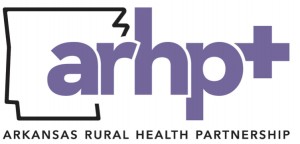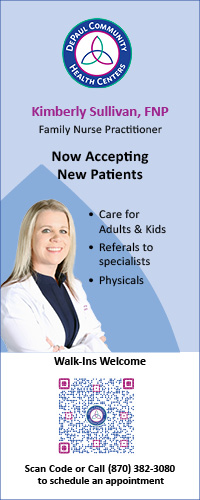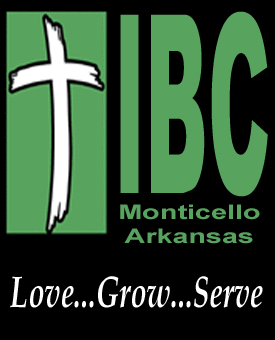$1.5 Million Grant Awarded to Help Build Rural Health Workforce in the South Arkansas Delta
October 12th, 2021 by On September 27, 2021, the Arkansas Rural Health Partnership (ARHP) received one of twelve awards made by the Delta Regional Authority (DRA), in partnership with the U.S. Department of Labor and the Appalachian Regional Commission. Funding is designed to provide employment and training services to workers and job seekers in the Appalachian and Mississippi Delta regions.
On September 27, 2021, the Arkansas Rural Health Partnership (ARHP) received one of twelve awards made by the Delta Regional Authority (DRA), in partnership with the U.S. Department of Labor and the Appalachian Regional Commission. Funding is designed to provide employment and training services to workers and job seekers in the Appalachian and Mississippi Delta regions.
The rural South Arkansas Delta region bordering the Mississippi River and northern Louisiana is largely known for agriculture and manufacturing sectors. Lack of sufficient education and employment opportunities for new and returning entrants into the workforce threatens to further escalate increasing outward migration trends in the region.
In a region recognized for high poverty, unemployment, and outward migration rates, dozens of job openings sit vacant at healthcare organizations across the south Arkansas Delta. There are few individuals with the proper qualifications or training to fill the slots. Meanwhile, soon-to-graduate high school students and other individuals looking to reenter the workforce are largely unaware of the promising training and employment opportunities available only minutes from their doorsteps.
The new project, Connect to Tech AR, will support individuals living in south Arkansas Delta communities to successfully move through the health workforce pipeline and into career placement (health information technology (HIT) and telehealth fields) with a local healthcare partner. The Arkansas Rural Health Partnership (grantee) will engage education (high schools, colleges & universities), healthcare (hospitals, federally qualified health centers & clinics) and local workforce (economic development) partners across the Delta region to recruit, train, mentor, and employ 70 individuals across the three-year grant. Grant funds will equip 70 Arkansas Delta students to help meet existing local healthcare workforce needs through tuition assistance (including books and laptop), apprenticeships, one-on-one support, community health worker training, and career placement with a local healthcare provider.
Proposed outcomes of Connect to Tech include:
Increase the number of local residents interested in pursuing a health career;
Increase the number of local residents successfully completing health careers training;
Increase the number of individuals cross-trained as community health workers in
the Delta, and;
Decrease current and future local health workforce vacancies related to health
information technology (HIT) and telehealth fields within the service area.
The project aligns with DRA state and federal strategic plans by improving workforce competitiveness and creating jobs. ARHP will coordinate efforts and actively engage the following collaborative partners: Southeast Arkansas Economic Development District, University of Arkansas at Monticello- College of Technology (Crossett), Phillips Community College of the University of Arkansas, University of Arkansas (UAMS) Institute for Digital Health Information, ARHP member hospitals (13), ARHP partner federally qualified health centers (2), and the Arkansas Community Health Worker Association.
“With such drastic health workforce shortages in the region, the only way to provide a real and lasting solution to the problem is to build a locally grown health workforce. We believe that no one knows or cares more about rural healthcare than those that live and work in rural areas. More and more of our efforts are focused on supporting our rural students and new entrants into the workforce through training, education, and financial support to meet our local rural health workforce needs. On behalf of the Arkansas Rural Health Partnership, we are thrilled to see the U.S. Department of Labor invest directly in our rural south Arkansas Delta region,” explained Mellie Bridewell, ARHP Chief Executive Officer. U.S. Department of Labor grant funds will help ARHP and partners build the next critical piece of the rural health workforce pipeline in the south Arkansas Delta.
Choose another article
Newer article: Fall Photo – Cotton Fields
Older article: Hunter Safety Classes, Starting Tonight, at Library
























































